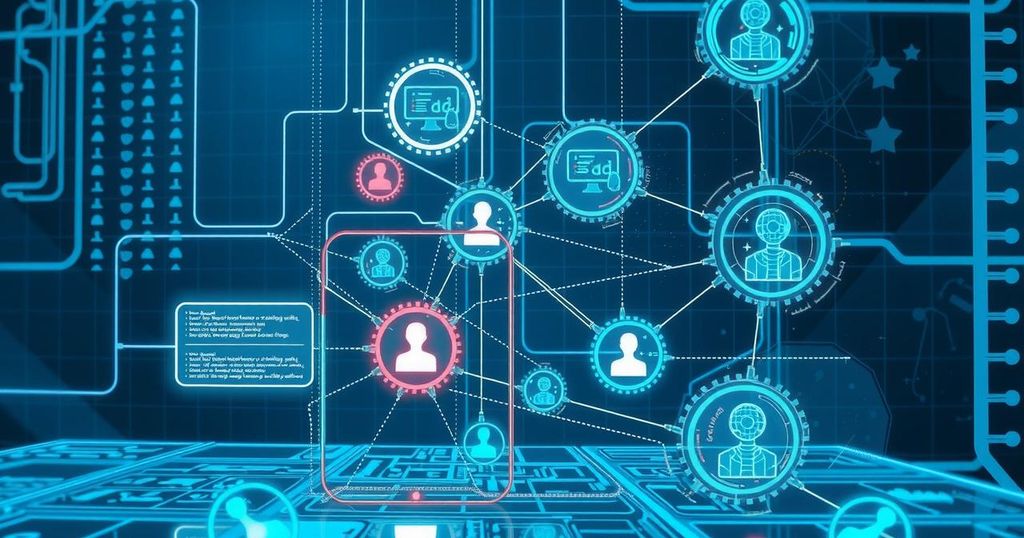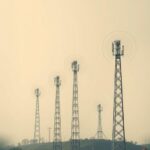Leaked Data Reveals China’s AI-Powered Censorship Mechanism
A leaked dataset has unveiled a sophisticated AI system in China designed to enhance censorship measures, targeting sensitive content like political dissent and corruption allegations. It reflects a growing trend of authoritarian governments adopting AI technologies for repression. Experts suggest the advanced capabilities of this system significantly improve state control over information compared to traditional censorship methods, raising concerns about free expression in China.
A leaked database has exposed a Chinese artificial intelligence (AI) system that enhances the country’s existing censorship capabilities. This advanced large language model (LLM) is designed to automatically detect content considered sensitive by the Chinese government, which includes complaints about corruption and poverty. The dataset examined by TechCrunch encompasses 133,000 examples targeting topics well beyond traditional censorship, such as the Tiananmen Square massacre.
The AI system appears primarily aimed at censoring online communication among Chinese citizens. Xiao Qiang, a researcher at UC Berkeley specializing in Chinese censorship, noted that this is “clear evidence” of governmental efforts to utilize AI models for increased repression. He emphasized that this approach surpasses conventional methods, improving efficiency in state-controlled information management.
This development is indicative of a larger trend, where authoritarian regimes are swiftly adopting advanced AI technologies. Reports from OpenAI indicated that Chinese entities are utilizing LLMs to monitor anti-government sentiment and discredit dissidents. The Chinese Embassy in Washington responded to these accusations by stating their opposition to such claims and emphasizing China’s commitment to ethical AI development.
The discovery of this dataset is credited to security researcher NetAskari, who found it on an unsecured database connected to Baidu. Although the origins of the dataset remain unclear, it contains recent entries and demonstrates the systematic nature of the data collection process focused on identifying specific categories of content.
The AI model employs instructions reminiscent of popular generative models like ChatGPT to screen material linked to sensitive political, social, and military issues. Topics considered as priorities for censorship include environmental concerns, labor disputes, and political satire, with reports involving Taiwan being flagged extensively as well.
Moreover, the dataset captures subtle dissent and privacy concerns, with samples highlighting issues such as local police corruption and rural poverty. The recurring mention of Taiwan in the dataset signifies its sensitive geopolitical status, reflecting the gravity with which Chinese authorities view discussions on the subject.
Labeled for ‘public opinion work,’ the dataset indicates its use for propagating government narratives while suppressing dissenting views. Michael Caster from Article 19 explained that public opinion work refers to censorship strategies guided by the Cyberspace Administration of China, aiming mainly to control online discourse and ensure the Chinese government maintains narrative dominance.
The growing sophistication in AI-powered censorship techniques indicates a shift in how authoritarian regimes manage public perception and dialogue. Researchers have revealed that state actors are using generative AI to surveil and influence social media conversations surrounding human rights discussions, thereby escalating repression efforts within China’s digital space. As AI technologies rapidly evolve, there is an increasing call to scrutinize how these systems are used to curb free expression.
The leaked database underscores the advancement of AI technology in enhancing censorship practices in China, revealing a systematic approach to suppress dissenting opinions while bolstering governmental narratives. With researchers and organizations highlighting the implications of AI-driven repression, it becomes evident that authoritarian regimes are leveraging sophisticated tools to maintain control over public discourse. As this landscape evolves, it is crucial for the global community to remain vigilant.
Original Source: techcrunch.com








Post Comment